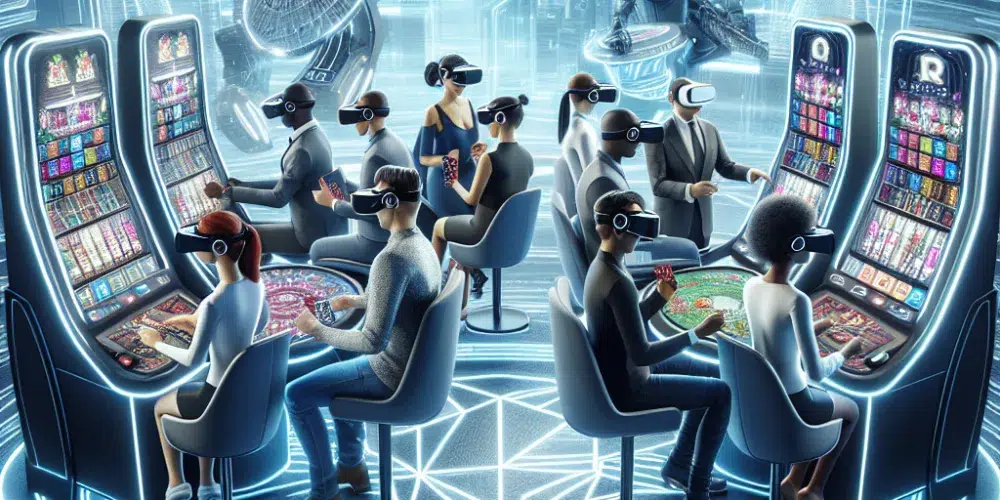In the ever-evolving landscape of the casino industry, a groundbreaking trend is reshaping how gamblers engage with their favorite games: virtual reality (VR) casinos. This innovative technology is not only enhancing player experience with immersive environments but also revolutionizing the traditional gaming floor.
The Rise of VR in Gaming
Virtual reality has been flirting with the gaming industry for several years, gaining traction among video gamers for its ability to transport players into vividly realistic, 3D environments. However, it’s the adoption into the casino sector that’s now capturing widespread attention. Operators are tapping into VR to offer a new form of entertainment that combines the thrill of live gambling with the convenience of online platforms.
How VR Casinos Work
VR casinos utilize virtual reality technology to create a fully immersive gambling environment. Players wear VR headsets to enter a digital world where they can interact with realistic casino layouts—walking around, choosing slot machines, sitting at poker tables, or engaging with other players and dealers in real-time, all from the comfort of their homes.
The Impact on Traditional and Online Casinos
The integration of VR technology is set to have profound implications for both brick-and-mortar and online casinos. For traditional venues, VR offers an opportunity to attract a younger demographic that might not be interested in conventional gambling environments. Online casinos, on the other hand, find VR a valuable tool to enrich the user experience, offering an immersive interface no longer confined to flat screens.
A Tool for Customer Engagement
Casinos have always sought innovative ways to enhance customer engagement, and VR is proving to be a powerful tool in this regard. By offering a more interactive and engaging experience, casinos can enhance customer loyalty and increase the time players spend at the casino, potentially leading to higher revenue.
Case Studies: VR Casinos in Action
Several pioneering companies are already making waves in the VR casino space. One notable example is SlotsMillion, an online VR casino that allows players to explore a vast virtual building and play over 40 different slots and table games. Another example is Casino VR Poker, which offers a comprehensive, multiplayer poker experience in virtual reality, providing body language and real-time voice chat, adding layers of strategy typically reserved for in-person play.
Future Trends in VR Gambling
Looking ahead, the potential expansions within VR casinos are bound to redefine gambling dynamics further. Industry experts predict enhancements in graphical fidelity, making these virtual environments indistinguishable from the real thing. Additionally, as VR technology becomes more accessible and cost-effective, more casinos are expected to adopt this technology, creating a new standard in gambling entertainment.
Overcoming Challenges
Despite its promising prospects, the VR casino sector faces significant hurdles. Issues such as technological accessibility, regulatory challenges, and the need for powerful hardware can impede widespread adoption. However, continuous advancements in VR technology and a growing interest in immersive gaming experiences suggest that these challenges may soon be overcome.
Conclusion
As the dawn of VR casinos changes the gambling landscape, stakeholders from all corners of the industry are watching closely. With the potential to draw in new players, offer new forms of entertainment, and create previously unimaginable casino experiences, virtual reality is poised to become a significant player in the future of gambling. As this technology continues to evolve and become more integrated into the gaming industry, it promises to offer a more inclusive and thrilling gaming environment for all players.



